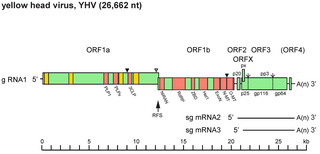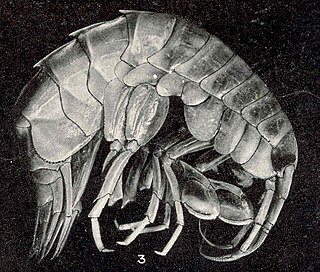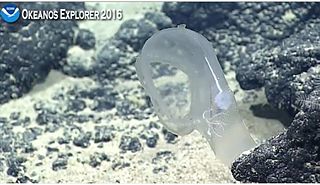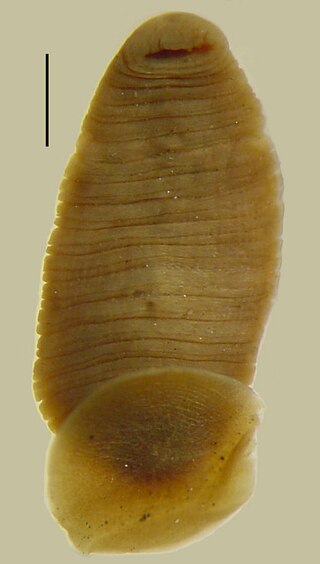
Okavirus is a genus of enveloped positive-strand RNA viruses which infect crustaceans. Host organisms are mostly shrimp. It is the only genus in the family Roniviridae. Viruses associated with the genus include: gill-associated virus (GAV) which causes reddening, biofouling with exoparasites, emaciation, and massive mortality; and yellow head virus (YHV) which causes yellow head, arrest of feeding, and massive mortality. The name is derived from the 'Oka' or lymphoid organ in which the viruses are commonly detected and in which pathology occurs during acute infections. Lymphoid organs are anatomical structures common to penaeid shrimp. There are three species in this genus.

Cambaroides is a genus of freshwater crayfish from eastern Asia. Together with Pontastacus, they are the only crayfish native to Asia. Cambaroides contains about six species:

Didemnum is a genus of colonial tunicates in the family Didemnidae. It is the most speciose genus in the didemnid family. Species in this genus often have small calcareous spicules embedded in the tunic and form irregular or lobed colonies. Some Didemnum species, including Didemnum vexillum and Didemnum perlucidem are considered invasive species. In early 2006, Didemnum vexillum was found covering a 230 km2 area of cobble habitat in Georges Bank off the coast of New England, and is classified as an invasive species of greatest concern in coastal areas throughout Europe, New Zealand, and North America. Didemnum sp. invasions have also been recorded in Canada, the Mediterranean, and the Netherlands.

Botryllus is a genus of colonial ascidian tunicates in the family Styelidae.

Neritidae, common name the nerites, is a taxonomic family of small to medium-sized saltwater and freshwater snails which have a gill and a distinctive operculum.
The Sulawesi forest turtle is a critically endangered species of turtle in the family Geoemydidae. The species is monotypic within the genus Leucocephalon. It is endemic to Sulawesi in Indonesia.

Notocrater is a genus of deep-water true limpets, marine gastropod molluscs in the family Pseudococculinidae, one of the families of true limpets.
Alexander Vinogradov is a Russian operatic bass. He began his music education at the age of 7, starting with the piano and the clarinet. From 1994 to 1995 he was a student at the Moscow State Technical University. Vinogradov became a student of the Moscow Conservatory in 1995.

Paralomis is a genus of king crabs. It includes the following 69 species:

Phymorhynchus is a genus of sea snails, marine gastropod mollusks in the family Raphitomidae.
Clavelina elegans is a tunicate species in the genus Clavelina. It is found in Japan.
Astyra is a genus of amphipods in the family Stilipedidae. It contains 6 species.

Amaryllis is a genus of amphipods belonging to the family Amaryllididae. The genus was first described in 1879 by William Aitcheson Haswell, and the type species is Amaryllis macrophthalma Haswell, 1879.

Eusirus is a genus of amphipods belonging to the family Eusiridae. The genus has cosmopolitan distribution. Within the genus Eusirus sexual dimorphism is weak, therefore identifying the sex of non-adult individuals is difficult.

Chelyosoma is a genus of tunicates belonging to the family Corellidae.

Armigeres is a genus of mosquito belonging to the family Culicidae. Certain species of Armigeres have the ability to raise their hindlegs and create an egg raft, which they subsequently transport and carefully deposit onto the water's surface.
Trischizostoma is a genus of crustaceans belonging to the monotypic family Trischizostomatidae.
Chuneola is a genus of crustaceans belonging to the monotypic family Chuneolidae.

Megalodicopia is a genus of tunicates belonging to the family Octacnemidae.

Torix is a genus of Rhynchobdellid leeches in the family Glossiphoniidae, found in Eastern Asia and Japan. Rana japonica, the Japanese brown frog, is the main host of T. tagoi.













